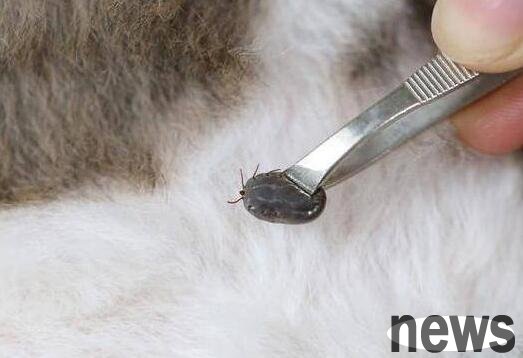Whether raising cats or dogs, improper breeding can easily cause them to be infected with parasites. Infecting parasites makes it more painful for animals, so when raising animals, you should pay attention to some breeding methods. Today, let’s learn about how to treat cats’ infection with parasites!
Epiphyseal parasites
Epiphyseal parasites are on cat's skin, fleas, lice, and ticks, visible to the naked eye, with a wide variety of mites, ear mites can be seen, and some are invisible.

Epiphany parasites make a living by sucking blood and eating sebum shavings. Cats who go out will be more likely to be infected, or they may be brought home by humans to infect cats. Exopathic parasites can infect people through cats, causing allergic dermatitis, or causing infection with other parasites. In addition, blood-sucking parasites such as fleas and ticks may also cause anemia in small cats.
Parasites in the body
Parasites in cats are mostly caused by contact with food, water or feces contaminated by insect eggs, such as roundworms, coccidiosis, flagellaria, etc. Tapeworms are caused by cats licking fleas infected with insect eggs. Heartworms are transmitted through mosquito bites. Generally speaking, adult cats are not fatal if they are infected with parasites in their bodies, while kittens can cause vomiting, diarrhea, malnutrition, and even death.
Give cats regular physical examinations, and by testing feces, you can make accurate judgments on whether the cat has parasites in the body. If you are infected with parasites, you should perform relevant treatment according to the instructions of the veterinarian. You should also perform regular internal deworming to prevent various parasites in the body.

Prevention method
Deworming once a month, and once every three months in winter. Common heartworm prevention drugs include Heartgard, Revolution, Advocate, Hailepin/Halomemy. Some of these drugs are taken orally and some are topical. The dosage is determined based on weight, once a month. Regular physical examinations and prevention are also the fastest and most effective way.
Go out less. Pets like cats don’t like dogs often like walking. Cats like to stay quietly. Although the outside world is colorful, they are easy to encounter various stray cats and stray dogs. If the pet cats at home often go out, they may be infected with parasites such as fleas, so cats can appropriately reduce the number of times they go out.
Take a bath frequently. Cats are a kind of animal that is afraid of water, so many pet cats don’t like to take a bath, but not taking a bath can easily cause a lot of parasites to grow on the cat. Therefore, people should let cats develop the habit of taking a bath frequently. Just wash twice a month, which can effectively prevent parasites from growing on the cat.